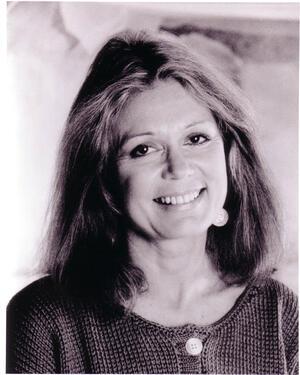Gloria Steinem
What’s a nice girl like me doing in a movement like this? I guess the real question is why it took me so long. I was about 34 or 35 before the light began to dawn. I had identified with every other social justice movement in the world first. I think that often happens to women – we identify with other underdogs, even if we don’t know why – but there was no women’s movement out there really, and nothing told me to take females as a group seriously. That’s especially ironic because I had a Jewish suffragist grandmother, Pauline Perlmutter Steinem, who died when I was about five. She had addressed Congress, but nobody told me about that. They told me that she was a wonderful woman who kept a kosher table, had four sons, and was a pioneer of vocational education – different measurements of success – but not that she was also the first woman to be elected to a Board of Education in the state of Ohio, as a suffragist on the same ticket with the socialists and the anarchists. I didn’t know this until a feminist historian in Toledo wrote a monograph about her. In a way, feminism rediscovered my grandmother for me. I think a lot of us have women in our families who aren’t talked about. They were the feminists.
It was really the women who had come out of the civil rights movement, who realized that sex was a caste system just as race was, who introduced me to feminism. Betty Friedan had already written The Feminine Mystique in 1963. It was very important for homemakers in the suburbs who were well educated and wanted to get into the paid labor force, but I thought, “I’ve always been in the labor force, and I’m still getting screwed.” I didn’t see how that message applied to my life. Then younger feminists came along with an analysis that included all females – a revolution and not a reform – and it made sense of my own life.
My first big experience of this came in 1969. Abortion was still illegal, and the New York State legislature was having a hearing on whether to liberalize the State abortion law. They invited 14 men and one nun to testify. A group of early feminists said, “Wait a minute, let’s hear from women who have actually had this experience.” They held their own hearing in a church downtown in Greenwich Village, and I went to cover it for a column called “The City Politic” that I was writing in what was then a brand new New York Magazine. I went as a reporter, but I think now that I was drawn to what I needed to know. At this speak-out, I heard women stand up and talk about having illegal abortions. I’d never heard women talk in public about that in my life – I’d never heard women take anything seriously that “only” affected women. Class, race, everything was serious because it also affected men, but if it only affected women, it couldn’t be serious. Then I saw these women standing up and telling their stories – dramatic, horrifying, funny. They spoke about the dangerous illegal underground they had to enter, about bargaining with illegal abortionists, dealing with men who demanded sex before performing an abortion – incredible stories. For me it was like a big light coming on. I had had an abortion and never told anyone – not a girlfriend, not the man, nobody.
That was my first big moment of “Aha!” I thought, “If one in every three or four women in this country has had this experience of needing an abortion at some time in her life, why is it secret? Why is it kept illegal and dangerous?” I went home and wrote an article about this for New York Magazine. It was not a personal article – reporters weren’t supposed to say “I” in those days. It was a column called “After Black Power, Women’s Liberation.” At the end, I said that if these younger, more radical, more “sex-as-a-caste” liberationists could coalesce with the NOW reformers – who were less radical then than they later became – there could really be a national populist women’s movement. For me, that was the beginning.
Gloria Steinem is one of the most influential writers, lecturers, editors, and activists of our time. She travels worldwide as a lecturer and feminist organizer, and is a frequent media spokeswoman on issues of equality. She is particularly interested in the shared origins of sex and race caste systems; gender roles and child abuse as the roots of violence; non-violent conflict resolution; the cultures of indigenous peoples; and organizing across national boundaries for peace and justice. In 1972, Steinem co-founded Ms. magazine, and she remained one of its editors for 15 years. Steinem helped to found the Women's Action Alliance and the National Women's Political Caucus. She was president and co-founder of Voters for Choice, and was also co-founder and serves on the board of Choice USA. Steinem was the founding president of the Ms. Foundation for Women, and also a founder of its Take Our Daughters to Work Day. Her books include the bestsellers Revolution from Within: A Book of Self-Esteem; Outrageous Acts and Everyday Rebellions; Moving Beyond Words; and Marilyn: Norma Jean, on the life of Marilyn Monroe.




